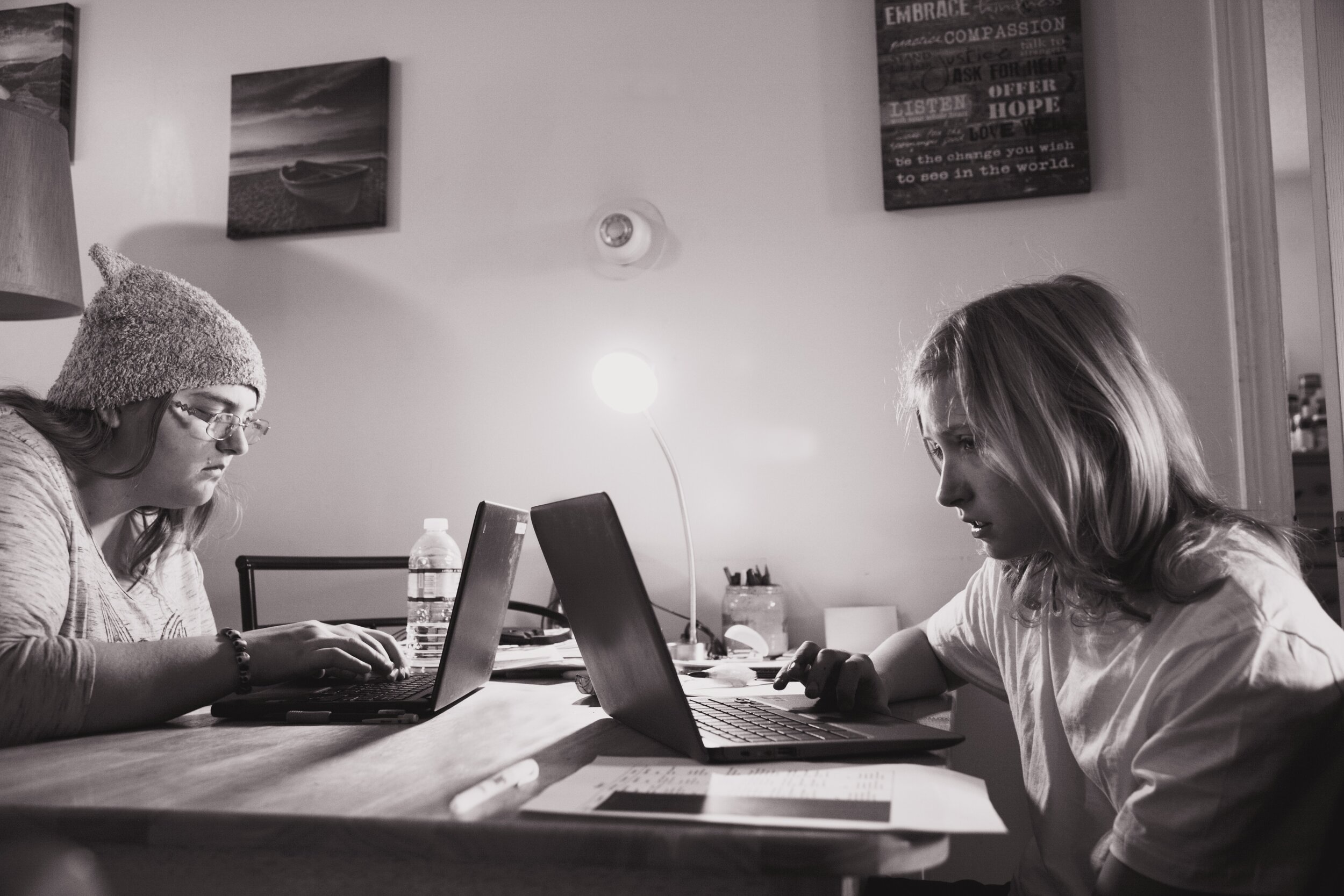The Unexpected Benefits of Teletherapy
Jill Stoddard
By Annabelle Parr, MA, AMFT and the CSAM team
It’s been nearly 4 months since we started COVID-19 quarantine, physical distancing, and since we transitioned to offering therapy via telehealth at CSAM. We knew from the outset of this shift that research indicates that, assuming that the therapist and modality are an appropriate fit for the client’s needs, teletherapy is as effective as in person therapy. Even still, we were initially apprehensive about this change, as we were uncertain how it would feel to switch from sitting across from our patients to communicating with them through a screen. Despite our initial worries, we have been pleasantly surprised to discover that not only has our experience been consistent with efficacy research, but that teletherapy has actually had a number of additional benefits we did not anticipate.
And given that the past few months have brought a lot of stress, pain, anxiety, grief, and frustration, we wanted to take a moment to reflect upon some of the beauty and connection that we have noticed amidst this tumultuous time. Below are reflections from our team of therapists on some of the benefits they have noticed about the tele-therapeutic process.
Common humanity: we’re all in this together.
CSAM Director Dr. Jill Stoddard said, “I was worried that telehealth would make the connection with clients less personal, but what I've found is that my clients are now introducing me to their partners, their kids, and their pets, so in many ways I actually feel MORE connected to them. I was also worried about interruptions from my own kids and dogs, which HAS happened, but my clients have been so patient and understanding. In many ways I think they too feel more connected to me because it's all just so human and we're having a shared, unique experience of having to do things from home with our families around.”
Increased connection: a fuller picture of clients’ lives.
Associate Director Dr. Michelle Lopez agreed. She said, “my experience is similar to what Jill described in that I feel MORE connected to clients. Telehealth has allowed me to have a fuller, more colorful picture of what their lives are like which I am able to envision when I am conceptualizing and tailoring treatment plans. It has also been excellent for exposures. When "we" can walk to the client’s backyard or kitchen (or wherever the exposure task needs to happen) in a matter of seconds, it allows more time for the actual exposure task. A few clients have commented on how much easier it is for them to "arrive" on time because they don't have to account for traffic, being unable to find their keys or shoes, etc.”
Superhero sidekicks: incorporating pets into therapy.
Superhero Therapy creator and lead trauma specialist Dr. Janina Scarlet noted that “an unexpected but interesting side effect of telehealth has been the ability to incorporate pets into therapy. Many people’s pets have become their sidekicks on their mental health journey and my own cat, Hera, has become a kind of mascot of an emotional support pet for many of my clients.”
Increased convenience: involving family and doing exposures at home.
Child and teen specialist Thi Wlodarski, LMFT agreed with Dr. Lopez that exposures have been more easily facilitated: “telehealth has been really beneficial for my clients whose rituals are often done at home. Clients are able to complete exposures in the situations that trigger their anxiety instead of having to simulate it in the office. I've also been able to do more family therapy because all members are home together. I've been able to involve parents who wouldn't normally been able to be present in session.
Comfort and creativity: therapy from the comfort of home.
Dr. Terra Fuhr said, “I have also found telehealth to be a surprisingly smooth transition. Several clients have commented that it feels easier to open up, be vulnerable and talk about difficult topics from the comfort of their own space. I also wonder if being in the environment where they live life may remind them--or prime them--to talk about the most relevant emotions of their day-to-day lives. We've been able to do more creative exposures. And everyone seems to love not having to factor in commute time!”
As always, we are continually inspired by our amazing clients.
Insomnia specialist Dr. Melissa Jenkins agreed with the rest of the team, and added her feelings of admiration for her clients’ courage and perseverance during this difficult time. “Over the past few months, I have been struck by how bravely and thoughtfully people have welcomed therapy into their homes by way of telehealth. In our current circumstances (in which we are faced with many competing demands on our time and energy as we navigate a new way of living amidst coronavirus), it can be really hard to keep appointments and prioritize mental health. I am truly inspired by my adult clients who are committed to prioritizing their mental health, showing up for appointments and challenging themselves, and by my client’s parents who continue making therapy a normal part of their children’s lives. Sessions, of course, look a little different as we engage in therapy together through screens; however, it has been powerful to connect with clients in their more natural environments (as opposed to a therapy office) and to witness continued growth in the face of substantial adversity right now.”
Teletherapy allows us to keep our clients and our communities safe.
Of course, we are all collectively missing the normalcy of life pre-pandemic. And here at CSAM, we look forward to a time when we can see our clients in person again. However, we are also happy and grateful that we are able to do our part in slowing the spread of COVID-19 by offering our services via telehealth for as long as is needed. Remaining at home and offering teletherapy is consistent with our values of keeping everyone as safe as possible while this pandemic continues. As the number of cases continues to rise both here in San Diego and across the United States, the best thing we can do to keep our clients and our communities safe is to stay home whenever possible. Under these circumstances, telehealth allows us to offer the most competent, compassionate and connected care.
If you need support during this difficult time, CSAM is here to help.
Even as we reflect on some of the upsides of telehealth and the strength, courage and resilience of our clients, we also recognize that this pandemic and the upheaval we are experiencing has increased stress, anxiety, and even trauma for many folks. So know that if you are struggling, you are not alone and evidence based treatment is still available to you.
If you or someone you love needs support and might benefit from cognitive behavioral therapy (CBT) or acceptance and commitment therapy (ACT) for anxiety, panic, phobias, stress, PTSD, OCD, insomnia, or stress related to COVID-19, or if you would like more information about our telehealth services, please contact us at (858) 354-4077 or at info@csamsandiego.com









